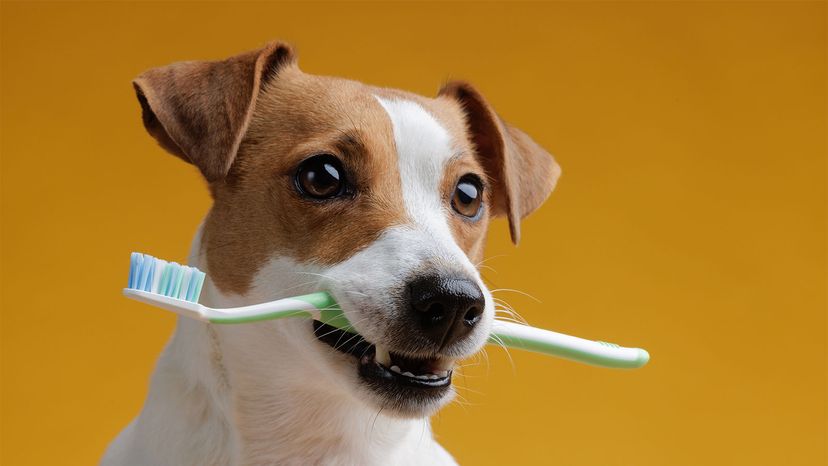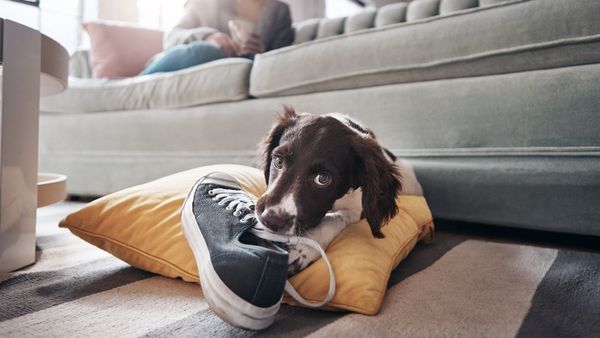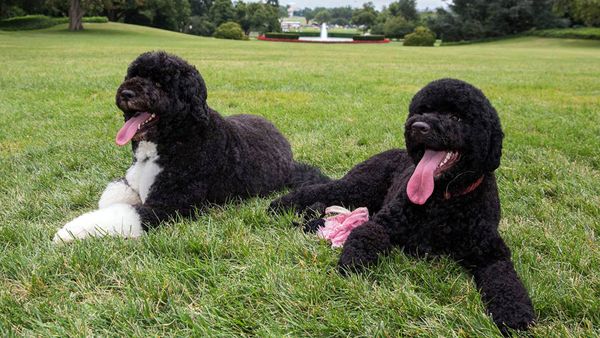
While a dog's grooming regimen involves a lot of pretty basic chewing and licking, if you tell your dog to go brush his teeth, there's a pretty good chance you'll never get more than a blank look from him. Dogs cannot brush their own teeth and, since they physically can't, you should absolutely be doing it for them, according to veterinarians.
Although you know it would probably be better for your pet and definitely more pleasant for your nose, it's difficult to get around to a daily toothbrushing session with your furry friend. For starters, dogs often don't love the process, and also, who has the time? Well, as the dentists say, only brush the teeth you want to keep, and this is true for Fido's pearly whites as well.
Advertisement

